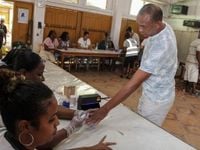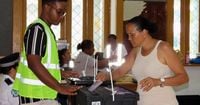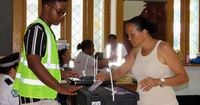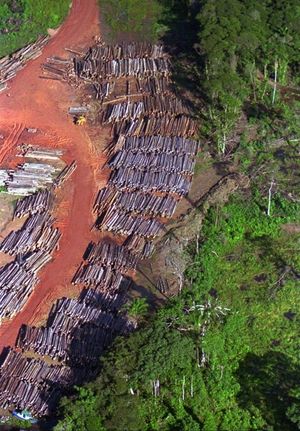For the people of Seychelles, the 2025 presidential election has turned into a dramatic two-act contest after no candidate managed to secure an outright majority. The announcement came on September 28, 2025, when the country’s electoral authority declared that neither incumbent President Wavel Ramkalawan nor opposition figure Patrick Herminie had crossed the crucial 50 percent threshold required for victory, as reported by The Associated Press and Al Jazeera.
The official results paint a picture of a nation deeply divided. Patrick Herminie, representing the United Seychelles party, led the first round with 48.8% of the vote. Meanwhile, President Ramkalawan, the candidate of the Linyon Demokratik Seselwa party, followed closely with 46.4%. With such a razor-thin margin separating them—and no other contender in striking distance—the stage is set for a high-stakes runoff election, scheduled to take place from October 9 to 11, 2025.
“State House does not belong to me,” Ramkalawan remarked following the announcement, in a pointed nod to the nation’s democratic principles. “State House does not belong to you. State House will always belong to the people of Seychelles.” According to AP, Ramkalawan has called for a public debate with Herminie, hoping such an exchange will help voters make an informed decision in the upcoming runoff.
Herminie, for his part, struck a confident tone. “The people are very unhappy with the way the country is being run,” he said. Herminie’s United Seychelles party is no stranger to power—it was the dominant force in the country’s politics from 1977 until it lost to Ramkalawan’s coalition in 2020. Now, just five years after their historic defeat, United Seychelles is seeking a comeback, leveraging rising public dissatisfaction and a host of pressing national issues.
Ramkalawan, seeking a second term, has campaigned on promises of economic recovery, social development, and environmental sustainability. His party, Linyon Demokratik Seselwa, emphasizes the need for stability and forward-thinking policies to guide Africa’s smallest country through uncertain times. With the runoff looming, both camps are ramping up efforts to sway the electorate, aware that every vote could tip the balance.
The lead-up to the election was anything but quiet. Early voting began on Thursday, September 25, with the bulk of ballots cast on Saturday, September 27. But even before voters headed to the polls, controversy was brewing. Just a week before the election, activists filed a constitutional case against the government, challenging its decision to grant a long-term lease of part of Assomption Island—Seychelles’ largest—to a Qatari company. The deal, which includes the reconstruction of an airstrip to facilitate international flights, is intended to pave the way for a luxury hotel development. However, critics argue it prioritizes foreign interests at the expense of local welfare and national sovereignty.
This dispute over Assomption Island has become a lightning rod for opposition sentiment. As reported by both AP and Al Jazeera, many Seychellois see the agreement as emblematic of a broader trend: the government’s willingness to cede control over prized national assets in pursuit of foreign investment. The backlash was swift and widespread, adding fuel to the growing dissatisfaction with Ramkalawan’s administration.
Yet, the Assomption Island controversy is just one of several challenges facing the nation. Seychelles, an archipelago of 115 islands scattered across some 390,000 square kilometers of the Indian Ocean, is renowned for its white-sand beaches, pristine coral reefs, and luxury tourism industry. According to the World Bank, these assets have helped catapult Seychelles to the top of Africa’s rankings for gross domestic product per capita. But prosperity has come with its own set of complications.
Climate change looms as an existential threat for the island nation. With most of its territory barely above sea level, Seychelles is particularly vulnerable to rising seas and extreme weather events. The United Nations Sustainable Development Group and the World Bank have both highlighted the country’s precarious position, warning that even small increases in sea level could have devastating consequences for its people and economy.
Meanwhile, a growing drug crisis is casting a shadow over daily life. According to the 2023 Global Organized Crime Index and a 2017 United Nations report, Seychelles has become a significant transit route for narcotics, especially heroin. The statistics are sobering: an estimated 6,000 people out of the nation’s 120,000 population are believed to use heroin, with some independent analysts suggesting the addiction rate could be as high as 10%. Most of the population lives on Mahé, home to the capital, Victoria, where the impact of the drug epidemic is most acutely felt.
These complex issues have shaped the tone and tenor of the election. Herminie’s campaign has seized on public frustration, arguing that the government’s handling of the economy, environment, and social challenges has left many behind. Ramkalawan, in response, insists that his administration has made progress on key fronts and is best positioned to steer the country through turbulent waters. The question now is which vision will resonate most with voters as they prepare to cast their ballots once more.
The stakes could hardly be higher. The United Seychelles party’s potential return to power would mark a remarkable reversal just five years after its historic defeat. For Ramkalawan, victory would validate his reform agenda and offer a mandate to continue his policies. For the electorate, the choice is not just between two men or two parties, but between competing visions for the future of their country—one rooted in continuity and cautious optimism, the other in change and renewed ambition.
As the October runoff approaches, both candidates are likely to intensify their outreach, seeking to win over undecided voters and mobilize their respective bases. The call for a televised debate underscores the importance of transparency and open dialogue in this pivotal moment. Seychellois citizens, accustomed to the rhythms of island life but all too aware of the challenges ahead, must now weigh their options carefully.
The world will be watching as Seychelles heads back to the polls. With its unique blend of natural beauty, economic promise, and political intrigue, the archipelago’s election is more than just a local affair—it is a test of democracy, resilience, and the enduring power of the people’s voice.







